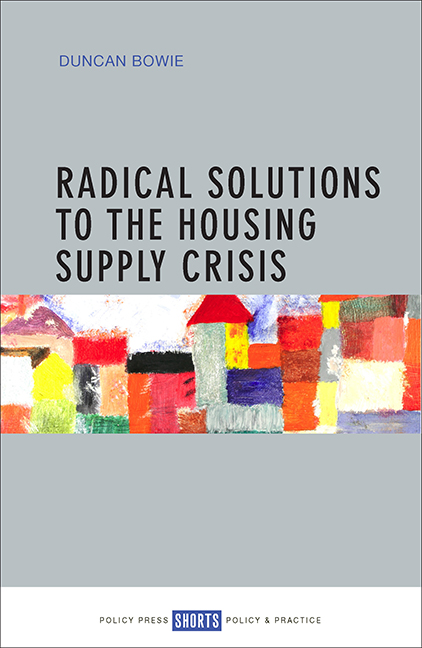4 - The housing deficit
Published online by Cambridge University Press: 05 April 2022
Summary
There is now a severe crisis of housing supply in many parts of England, most significantly in London and the South East. The crisis is not just one of a shortage of numerical supply, but one of a shortage of affordable homes. Overall output of new homes has continued to be well below estimates of annual housing requirements. It is generally acknowledged that the annual requirement for new homes is between 240,000 and 280,000 a year, while in the last five years, housing output has ranged between 100,000 and 125,000 a year. The housing requirement in London is assessed at 62,000 homes a year, while output in recent years has ranged between 15,000 and 18,000. For households unable to access market homes, the position is even more acute. Taking London, the area of most acute housing need, where an average market home costs £500,000, more than 18 times average individual incomes of £28,000, more than 50% of households in housing need require some form of sub-market housing – over 30,000 a year – while only 2,000–3,000 housing association and council rented homes a year are built. However, it should be recognised that the housing deficit is no longer limited to London and the South East. Under-occupation and overcrowding have grown in parallel. We are facing a crisis of undersupply, inappropriate supply, unaffordability and ineffective use of the existing housing stock – problems of quantity, quality, access and distribution. The issue of housing affordability will be discussed more fully in Chapter Five. The issue of housing type and quality will be considered in Chapter Six, while the issue of the effective use of both the existing and new housing stock will be considered in Chapter Seven. In this chapter, I will first discuss some of the factors impacting on undersupply before focusing on the issue of where new homes should be built, considering first the challenges of responding to the acute housing shortage in the South East of England, centred on London.
Successive governments have tended to focus on planning policy and practice as the main constraint on housing supply, both in terms of the overall number of new homes built and in terms of the market price. This was the key conclusion of Kate Barker's review of housing supply in 2004.
- Type
- Chapter
- Information
- Radical Solutions to the Housing Supply Crisis , pp. 63 - 84Publisher: Bristol University PressPrint publication year: 2017



